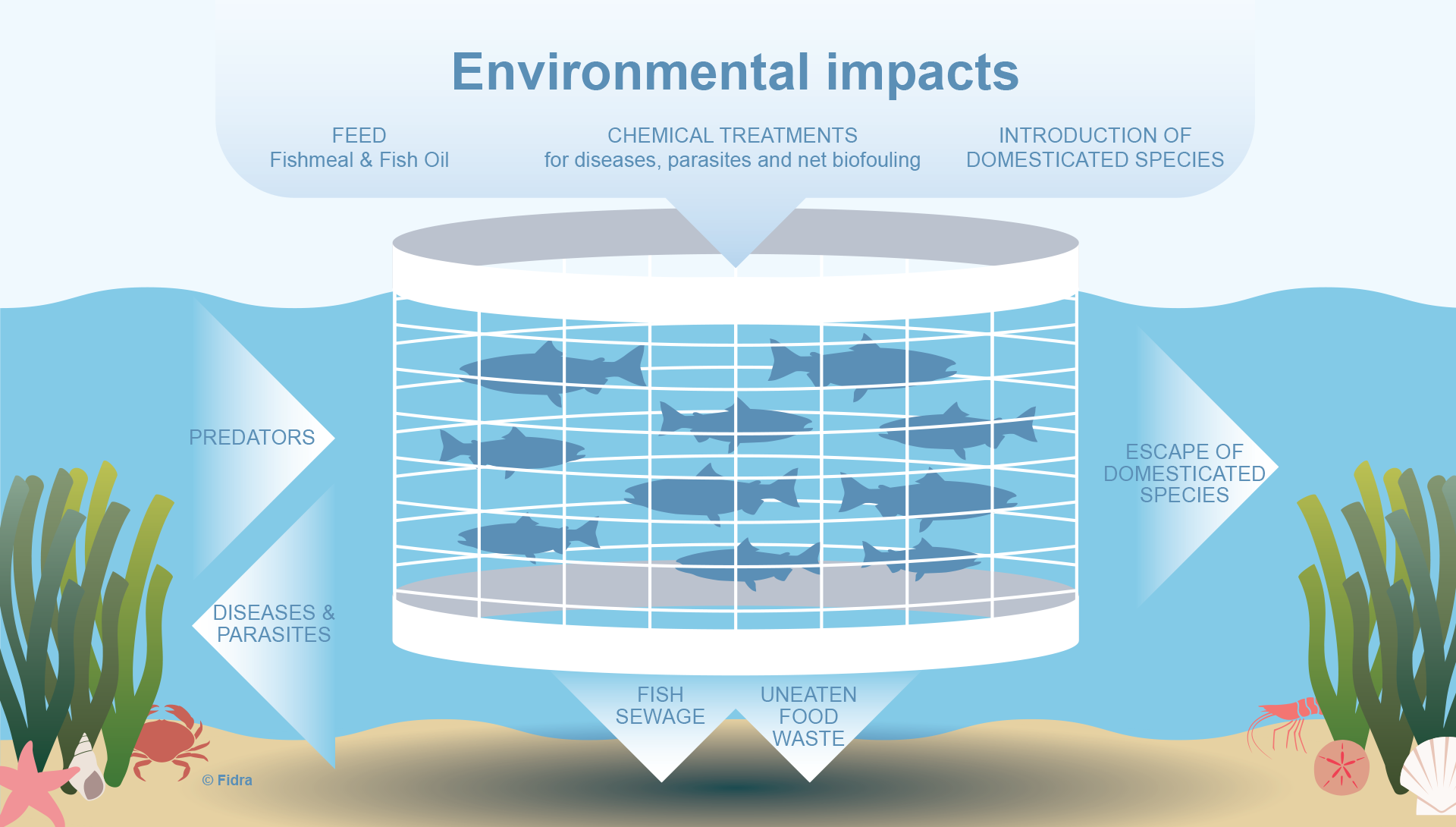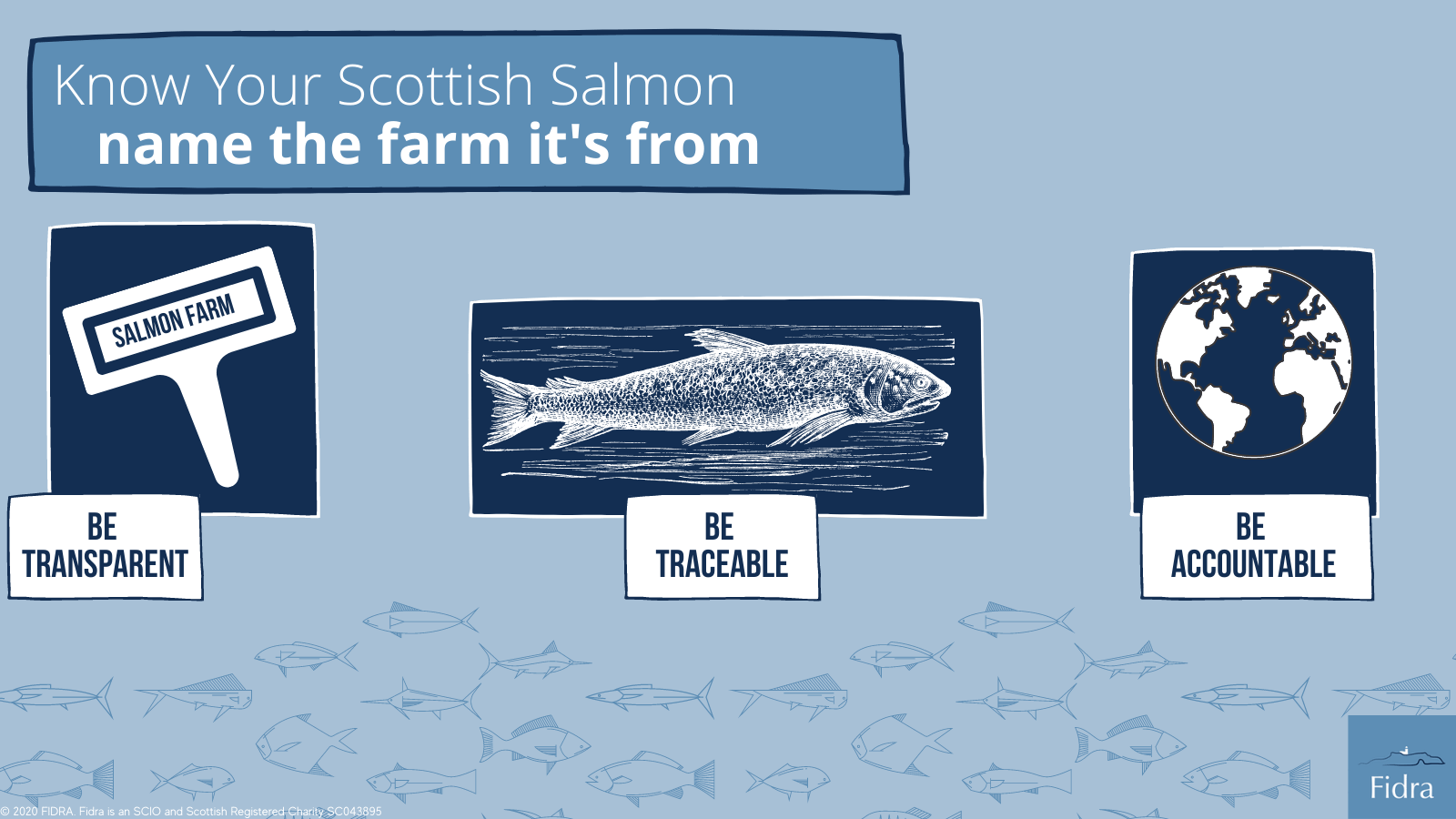Photo by John Bostock
A FIDRA PROJECT
Best Fishes
Please note – As of November 2023 Fidra has concluded this phase of work in relation to the environmental impacts of Scottish salmon farming.
Fish populations are under increasing pressure from overfishing, climate change and pollution. Aquaculture is widely seen as a solution to the growing need for protein to feed the human population. However, as with any intensive farming, it brings with it environmental issues around animal welfare, disease, pest control and associated chemicals, and pollution from waste products.
This phase of Fidra’s Best Fishes project has now ended. However we encourage retailers, suppliers and industry to continue to work toward increasing and ensure transparency, traceability and sustainability throughout the Scottish salmon supply chain.
Scotland has over 200 open net salmon farms
THE PROBLEM
The use of open net pens in Scottish salmon farming has significant environmental impacts, which will be affected by climate change.
With aquaculture production increasing worldwide, effective regulation is essential to mitigate the industry’s environmental impacts.
Currently, consumers are unable to easily find clear information about the salmon they are eating and how its production impacts the environment.

Open net fish farms have multiple environmental impacts
THE SOLUTION
Making information on individual farms accessible through a comprehensive database will enable easy identification of poorly performing salmon farms.
Retailers labelling their salmon with the source farm will allow consumers to access information on the impact a salmon product has on the environment and make informed purchasing possible.
By ensuring all data is public, transparent, and accessible in a format that is easily understood, retailers, processors and producers will be more accountable to improving the standards of the industry.
Polystyrene fish boxes are still widely used for seafood despite sustainable alternatives being available
OUR ASKS
~70% of consumers want to have access to information about the salmon products they buy on packaging. Retailers should be leading the way with traceability information for consumers.
Retailers should show support for supply chain transparency by calling for development of a comprehensive database providing accessible information on individual farms.
Show retailers you want them to be accountable by buying salmon from named farms, see which retailers name their sources farms on OUR WEBSITE.

Fidra has asked for greater transparency around Scottish salmon
WHAT WE’VE ACHIEVED
We have facilitated two workshops and a webinar event to engage with key industry stakeholders who have all outlined their desire for a farm-focused centralised database on environmental impacts.
Seven major UK retailers now name the area/farm where salmon was sourced from, with 8/10 UK retailers are now part of the Ocean Disclosure Project
We have produced a comprehensive review of alternatives to polystyrene fish boxes for use by seafood producers, processors and retailers.
We have engaged with policy makers and regulators, responded to consultations and engaged as part of multi-stakeholder working groups, assisting in the development of the Scottish Governments ‘Vision for Sustainable Aquaculture’ detailing long-term the ln-term vison for Scottish aquaculture.


